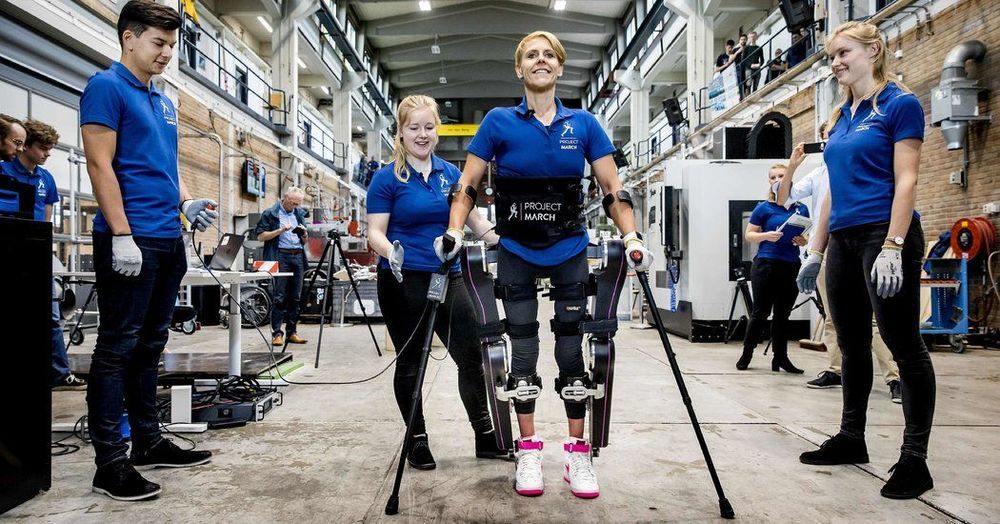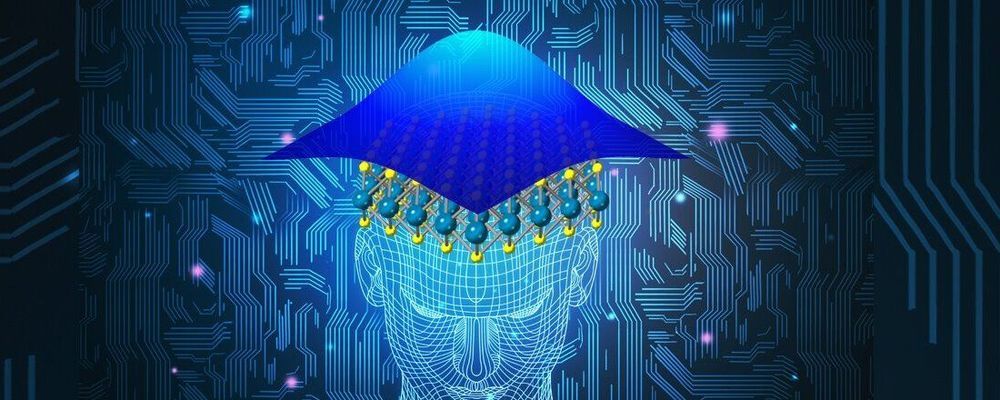In the 50 years since the moon landing, humanity has made tremendous leaps in technology. But how close are we to turning our sci-fi aspirations—from space colonies to asteroid mining—into reality? (Partner content)
Page 7397
Sep 13, 2019
Lab-Grown Human Mini Brains Show Brainy Activity
Posted by Genevieve Klien in category: neuroscience
As the little structures grow, their constituents specialize into different types of brain cells, begin to form connections and emit brain waves. They could be useful models for development and neurological conditions.
It’s not easy to study the early development of the human brain.
Sep 13, 2019
Researchers Have Issued A Serious Bitcoin Security Warning
Posted by Genevieve Klien in categories: bitcoin, cryptocurrencies, security
Bitcoin and cryptocurrency adoption has failed to live up to expectations over recent years and fears around scams, fraud, and theft have not helped.
The bitcoin price, after its epic 2017 bull run, slumped last year– though has rebounded in 2019, climbing back above $10,000 per bitcoin.
Now, researchers have warned a staggering four out of the first five results returned when asking Google for a “bitcoin qr generator” led to scam websites–potentially furthering negative public perception around bitcoin and cryptocurrency.
Sep 13, 2019
The Brave New World of Sports
Posted by Zoltan Istvan in categories: biotech/medical, cyborgs, ethics, transhumanism
I’m excited to share my new article for The New York Times on the brave new world of #cyborg ability and coming #transhumanism sports:
I wonder whether the sporting industry might create some new competitions where — just like technology — performance-enhancing drugs are encouraged. Innovations like the new oxygen-infused injection, which might one day allow humans to hold their breath for 15 to 30 minutes, could allow competitive free divers to reach new depths, showing just how far the human body can go.
Critics will complain that the human body was not designed to compete using enhancements and that it violates the code given to us by the ancient Greeks and their first Olympics Games, where “arête,” or excellence and moral virtue, was cherished. As a longtime competitive athlete, I appreciate the sportsmanship angle; but I also think that in the 21st century we can develop both the drugs and the technology to see humans compete in new sporting events that are even more exciting than their predecessors.
Sep 13, 2019
Doug Ethell at Ending Age-Related Diseases 2019
Posted by Nicola Bagalà in categories: biotech/medical, life extension, neuroscience

We’re continuing to release talks from Ending Age-Related Diseases 2019, our highly successful two-day conference that featured talks from leading researchers and investors, bringing them together to discuss the future of aging and rejuvenation biotechnology.
Today, we’re releasing a talk from Dr. Doug Ethell, who announced his company’s efforts to combat Alzheimer’s disease, describing where and how this neurodegenerative disease starts and discussing his company’s work on developing therapies for the cribiform plate, which naturally clears amyloid-forming proteins from the brain before they aggregate.
Sep 13, 2019
Prof. Dr. Collin Ewald — ETH Zürich — Extracellular Matrix and Healthy Aging — IdeaXme Show — Ira Pastor
Posted by Ira S. Pastor in categories: aging, biological, biotech/medical, cryonics, DNA, genetics, health, life extension, neuroscience, science

Sep 13, 2019
Dr. Anthony Atala — Wake Forest School of Medicine — Organ Bio-Printing — IdeaXme Show — Ira Pastor
Posted by Ira S. Pastor in categories: 3D printing, aging, bioengineering, bioprinting, biotech/medical, business, health, life extension, science, transhumanism

Sep 13, 2019
Over Next Three Years, Employees will Need Reskilling as AI Takes Jobs
Posted by Müslüm Yildiz in categories: business, economics, Elon Musk, employment, robotics/AI

IBM HR Director Diane Gherson says that over the next three years, 120 million workers will need retraining as artificial intelligence continues to take jobs.
Artificial intelligence is obviously ready to get started. Over the next three years, about 120 million workers from the 12 largest economies in the world may need to undergo retraining due to advances in artificial intelligence and intelligent automation, according to a study published on Friday by the IBM Institute of Business Value. However, less than half of the CEOs surveyed by IBM said they had the resources needed to bridge the skills gap caused by these new technologies.
Continue reading “Over Next Three Years, Employees will Need Reskilling as AI Takes Jobs” »
Sep 13, 2019
New Test to Measure The Expansion of Our Universe Provides Even More Puzzling Results
Posted by Paul Battista in category: space
Advances in astronomical observation over the past century have allowed scientists to construct a remarkably successful model of how the cosmos works. It makes sense – the better we can measure something, the more we learn.
But when it comes to the question of how fast our Universe is expanding, some new cosmological measurements are making us ever more confused.
Since the 1920s we’ve known that the Universe is expanding – the more distant a galaxy is, the faster it is moving away from us. In fact, in the 1990s, the rate of expansion was found to be accelerating.
Sep 13, 2019
Brain-inspired computing could tackle big problems in a small way
Posted by Saúl Morales Rodriguéz in categories: neuroscience, supercomputing
While computers have become smaller and more powerful and supercomputers and parallel computing have become the standard, we are about to hit a wall in energy and miniaturization. Now, Penn State researchers have designed a 2-D device that can provide more than yes-or-no answers and could be more brainlike than current computing architectures.
“Complexity scaling is also in decline owing to the non-scalability of traditional von Neumann computing architecture and the impending ‘Dark Silicon’ era that presents a severe threat to multi-core processor technology,” the researchers note in today’s (Sept 13) online issue of Nature Communications.
The Dark Silicon era is already upon us to some extent and refers to the inability of all or most of the devices on a computer chip to be powered up at once. This happens because of too much heat generated from a single device. Von Neumann architecture is the standard structure of most modern computers and relies on a digital approach—” yes” or “no” answers—where program instruction and data are stored in the same memory and share the same communications channel.














